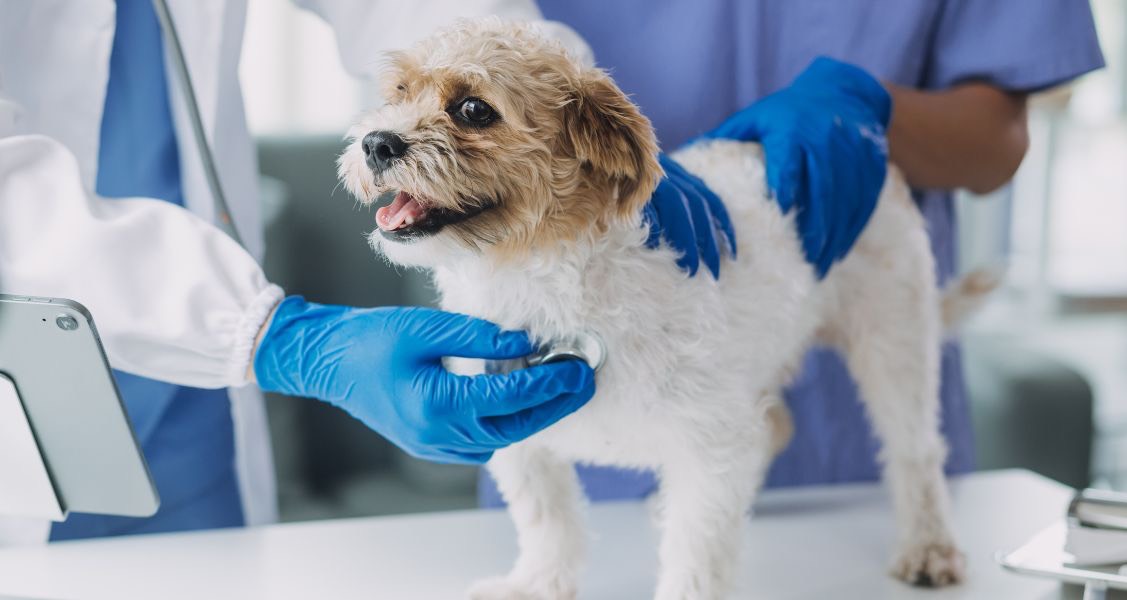What Will You Learn About Your Dog at the First Vet Visit?
Dec 20, 2023

You meet a litter of puppies and decide to bring one home to raise. Maybe you find a three-year-old stray on the side of the road and choose to make them the newest member of your family. No matter the age or breed, all dogs need a veterinarian.
Going to the vet for the first time can be frightening for dogs and adults alike. Read on to learn what you will learn about your dog at the first vet visit.
Establish the Pet’s Identification
During your first vet visit, the importance of pet identification will likely come up. The vet will check to see if your dog has a microchip. If so, they will change the information in the system to update the existing chip with your contact information.
If your pup doesn’t have a microchip yet, the vet will recommend implanting the device under your dog’s skin. The microchip contains a unique identification number linked to your information, so you can always find your pup if they ever stray from home.
Find Out if Your Pup Needs Vaccinations or Medications
Vaccinating your dog is an essential part of protecting them from harmful viruses and bacteria. The veterinarian will review your dog’s medical records and make recommendations about any necessary vaccinations.
Older dogs may need booster shots for previously administered vaccines, while puppies will require a series of vaccinations to build their immunity. Your veterinarian may also recommend preventative medications, such as flea and tick treatments or heartworm preventatives.
Learn if Your Dog Has a Healthy Heart and Lungs
A healthy heart and lungs are crucial for maintaining your dog’s overall well-being. The veterinarian will carefully listen to your dog’s heart and lungs using a stethoscope, conducting a thorough examination to detect any irregularities or potential issues.
If they detect any abnormalities, they will provide guidance on how to properly treat the condition. Closely monitoring these essential organs will ensure that your new furry friend is healthy and properly cared for.
Uncover Any Dental Issues
Untreated dental issues in dogs and puppies can quickly escalate. The vet will evaluate your dog’s gums for redness, swelling, or infection and examine their teeth for signs of damage or decay.
The vet can recommend specific oral care routines for home, such as brushing regularly with dog-safe toothpaste or trying dental chew toys for a natural approach.
Identify if Your Dog Is an Appropriate Weight
Dogs that don’t have healthy diets paired and do not receive sufficient exercise may become overweight. Proper nutrition is invaluable. While you almost can’t resist giving your dog tons of table scraps and treats, it’s important to say no to those puppy-dog eyes.
At your dog’s first visit to the vet, you will learn about the right food and treats to give your dog. It’s important to offer a balanced diet of proteins, carbohydrates, fats, vitamins, and minerals.
Don’t forget about the must-have items for training a puppy, including plenty of treats to reward them for good behavior. The vet will give advice about what treats are safe to eat as a puppy during training.
Everything you do for your dog has an impact on their health. Don’t hesitate to ask the veterinarian several questions during the visit. It’s vital to do your part and support your new pup’s healthy lifestyle.


Disclaimer: healthcareforpets.com and its team of veterinarians and clinicians do not endorse any products, services, or recommended advice. All advice presented by our veterinarians, clinicians, tools, resources, etc is not meant to replace a regular physical exam and consultation with your primary veterinarian or other clinicians. We always encourage you to seek medical advice from your regular veterinarian.

